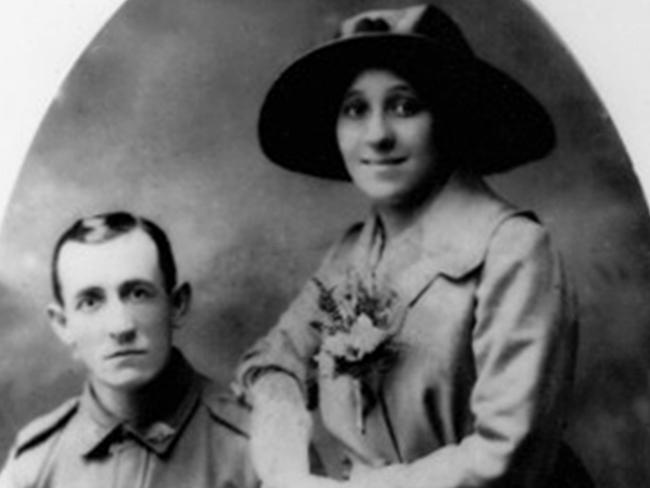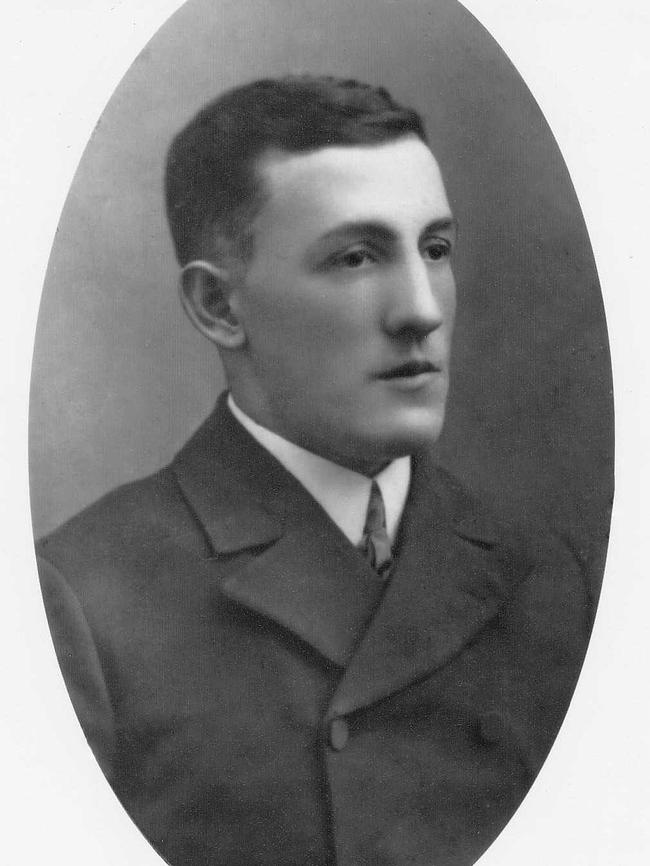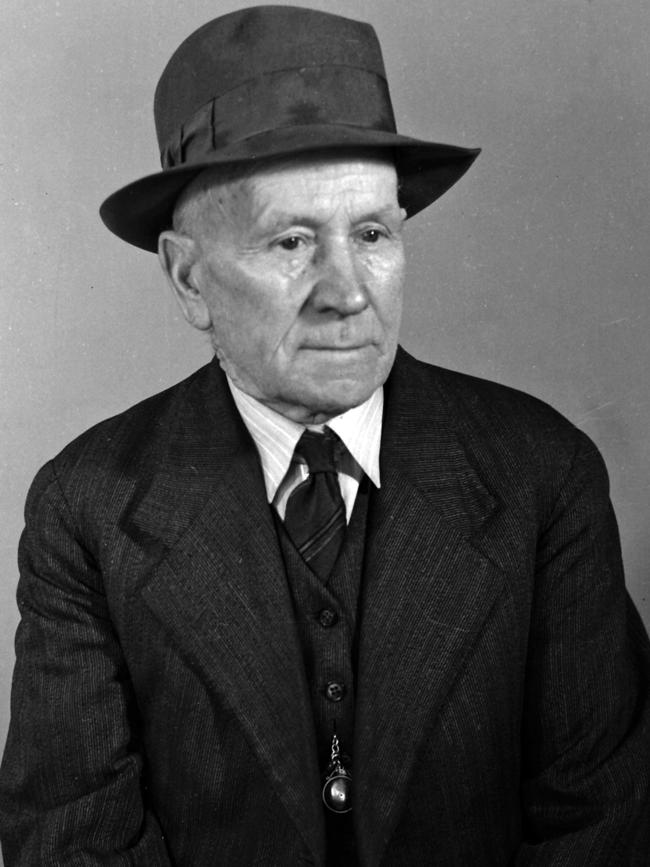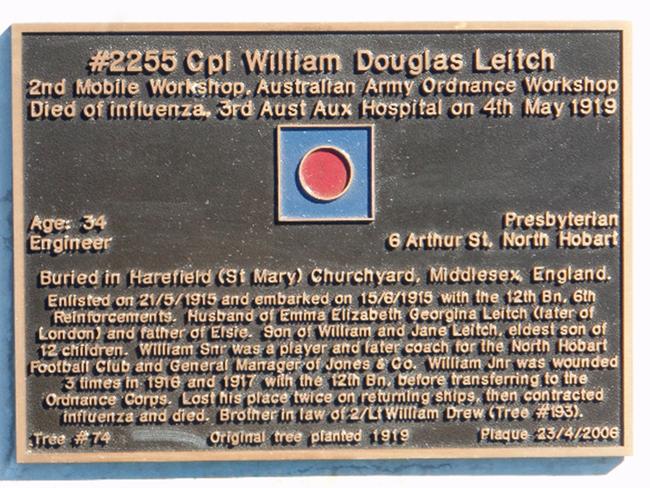The eldest son of Tasmania’s grand old man of football William Leitch was struck down after surviving the worst of World War I
WILLIAM Leitch is a name that sounds familiar to many Tasmanians and resonates with football followers in the state.

Tasmania
Don't miss out on the headlines from Tasmania. Followed categories will be added to My News.
WILLIAM Leitch is a name that sounds familiar to many Tasmanians and resonates with football followers in the state.
The Hobart-born son of Scottish immigrants came to be known as the grand old man of Tasmanian football. The medal for the Tasmanian Football League’s best and fairest player carried his name for decades and continues to be the peak award of the Southern Football League.
In 1915 his eldest son, also named William, enlisted for service with the 12th Battalion. Known as Will, he was aged 30 and named his father as his next-of-kin.
There were 12 children in the family and during the course of the war he wrote regularly to his eldest sister, Elsie, and others. Some of the letters still survive.
An engineer by trade, he had served a five-year apprenticeship with R. Kennedy and was working for Henry Jones and Co at the time of his enlistment.
Will was “taken on strength” at Gallipoli on August 6, 1915, the first day of the Battle of Lone Pine.
He remained unscathed until succumbing to influenza and dysentery. He was transferred to hospital in Egypt where he later developed appendicitis.
By the time he was once again fit for service, the Australian forces had been withdrawn from Gallipoli.


Transferring to France, Will was part of the deadly action on the Somme at Pozieres and Mouquet Farm in August 1916 and suffered a gunshot wound to his right wrist.
In action at Boursies, France, in April 1917, Will was serving alongside 12th Battalion colleagues Captain J.E. Newland and Sergeant J.W. Whittle who would be awarded the Victoria Cross for their gallantry in this battle.
Will suffered a severe gunshot wound to his left leg on April 8, resulting in the fracture of his tibia and fibula. He was sent to England for treatment and during this time he met Emma Thane.
They were married on September 20, 1917, and had a daughter Elsie, most likely named after Will’s sister.
He rejoined his battalion in December to spend another winter at the front. He injured his right ankle in March 1918 and was again dispatched to England for recovery.
Following a course of instruction with the Australian Army Ordnance Corps, Will was promoted to corporal.
After the armistice he again reported to hospital, having problems with the old wound to his left leg.
Having survived active duty and the raging influenza pandemic, Will died from pulmonary tuberculosis at the 3rd Australian Auxiliary Hospital, Dartford, on May 4, 1919, and was buried at the Australian Military Burial Ground at Harefield.
A letter to his father described the funeral service: “The late soldier was accorded a full military funeral, firing party, bugler, and pallbearers being in attendance. The coffin (of good elm with brass fittings) was draped with the Australian flag and conveyed to the graveside surmounted by several wreaths.”
Will’s widow and daughter are not known to have visited Australia. His father became active in the welfare of dependants of soldiers who did not return. William Leitch senior not only lost his son but also two sons-in-law in the war.
Corporal William Douglas Leitch is remembered at tree 74 on the Soldiers’ Memorial Avenue and on honour boards at Elizabeth College and the Hobart Town Hall.



